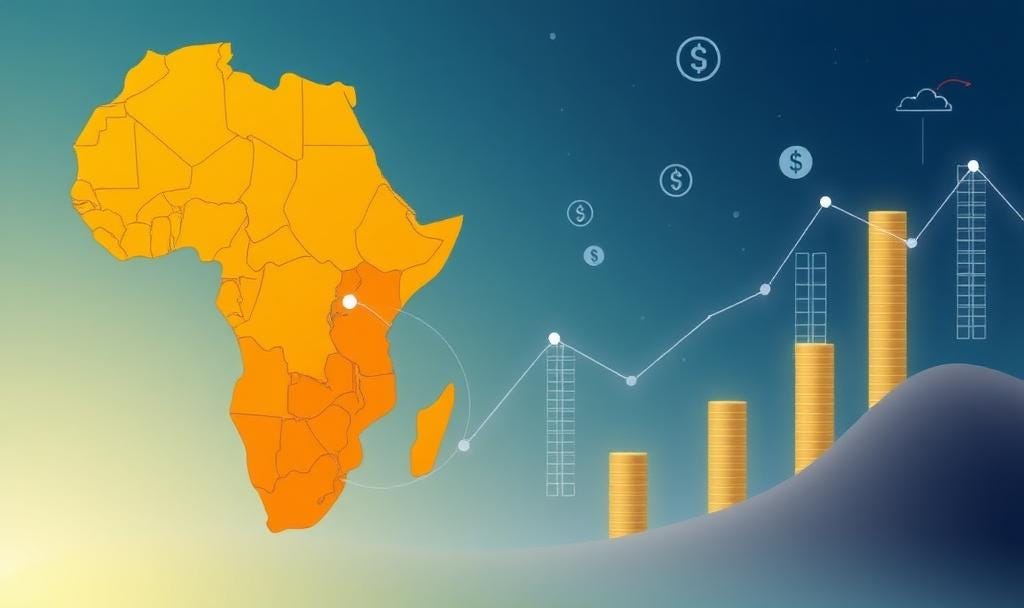Listen to the full episode now
The African fintech space is moving – in both good and wild ways. In the last couple of weeks, we’ve seen major fundraising wins, bold expansion plans, and a few head-scratching decisions. Let’s get into it.
Cedar Money Raises $9.9M Seed Funding
Cedar Money is making moves, raising $9.9 million in seed funding led by QED. Their mission? Facilitating payments between emerging and developing markets. And while they’re still getting their infrastructure right, (they only just launched their mobile app) they’re clearly gaining traction. But here’s where it gets tricky: Cedar’s using stablecoins (or as they prefer, “digital assets”) to facilitate cross-border payments. It’s efficient, sure, but also a crowded space with competition like Waza playing in the same sandbox.Raenest Secures $11M Series A to Expand Beyond Nigeria
Raenest is taking a different approach; they’re enabling gig workers and freelancers to receive payments from international clients. After raising $11 million in a Series A round (also led by QED), they’re eyeing expansion into Kenya, the US, and Egypt. This is a market with huge potential, especially with more African freelancers earning in foreign currency. But with established players like Grey and Cleva already in the space, Raenest will need a strong strategy to carve out its niche.Oze’s Quiet but Strategic Growth in Ghana
Ghanaian startup Oze is playing the long game. They’ve raised an undisclosed amount from Visa and DEG to build a lending management solution for small businesses. What makes Oze so different? They started with bookkeeping and evolved into lending, using the data they gather to offer more tailored financial products. In a market where SMEs often struggle to access credit due to limited data, this approach is really smart.Affinity Africa Banks $8M to Go Branchless
Ghanaian startup Affinity Africa just raised $8 million to expand their branchless banking model. They’re offering digital banking services with some value-added twists (like interest-earning accounts) to compete with mobile money providers. But let’s be real: digital banking in mobile money-heavy markets is hard mode. Affinity will have to offer real incentives to convince people to move their cash from familiar mobile wallets into their accounts.The MTN Momo Reality Check
Speaking of mobile money, MTN’s Momo service isn’t having the best time. Despite early hype, they’ve seen a 47% drop in active wallet users and a decline in both agents and merchants. Turns out, scaling financial services isn’t as easy as it looks –especially when your core mobile services still leave people frustrated. Banks may be slow, but at least they’ve got muscle, and Momo’s struggles show just how tough it is to challenge them.Vendease’s Scaling Struggles and Layoffs
Food procurement startup Vendease raised $72 million since 2019; but they’re still cutting jobs, with 120 employees laid off in their latest round of restructuring. Why? Their buy-now-pay-later (BNPL) model hasn’t generated enough revenue, and the business itself is tough to scale in a market like Nigeria, where supply chains and logistics are notoriously fragmented.Edukoya’s Shutdown: When Good Metrics Aren’t Enough
Despite raising $3.5 million in pre-seed funding and serving over 80,000 students, EdTech platform Edukoya shut down and plans to return capital to investors. The numbers looked great on paper – “ millions of questions answered, thousands of live classes – “ but market readiness and infrastructure gaps made survival impossible. A rather harsh reminder that even when the demand exists, success depends on much more than user growth.
The Future of African Fintech: Cautious Optimism
The funding flowing into African fintech is exciting, but the ecosystem’s challenges are real. Between regulatory hurdles, infrastructure issues, and market fragmentation, even well-funded startups face an uphill climb.
Enjoyed reading this? Follow us on X













Share this post